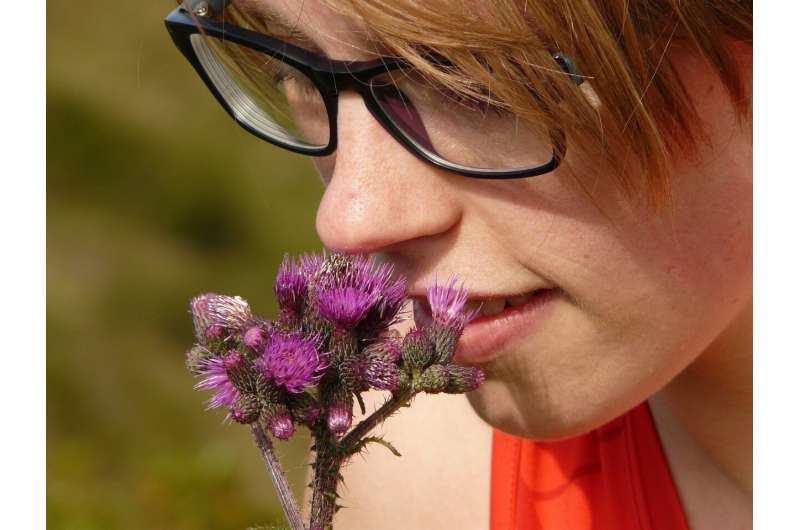This article has been reviewed according to Science X's editorial process and policies. Editors have highlighted the following attributes while ensuring the content's credibility:
fact-checked
peer-reviewed publication
reputable news agency
proofread
Sniffing out relief for loss of smell and taste following COVID-19 infection

John T. reads this column in the St. Louis Post-Dispatch and writes about his experience with COVID-19: "I had minimal symptoms with the exception of my loss of taste and smell. I am a little concerned as it is approaching eight weeks since I have been negative for COVID and I have never recovered from my loss of taste and smell. Will this just pass in time or should I be concerned? Any ideas, suggestions would be much appreciated. I have an appointment with an ENT doctor in mid-February regarding this."
Yes, John, I would definitely keep that appointment with your physician! I am not a doctor but can offer what I have sniffed out from research reports.
First, you're not alone in this. As many as one in five people who have recovered from COVID-19 continue to have problems with smell and taste for eight or more weeks, according to an article on this topic published by the National Library of Medicine.
Our sense of smell is directly related to taste, say experts. And both are necessary to make the food we eat appealing. When smell and taste are absent or distorted, it affects how we eat in a big way.
Is there a good treatment to recover these valuable senses? So far the evidence is weak but hopeful, according to a systematic review of 38 studies on this topic published in 2023 in the journal of BMC Infectious Diseases.
Physical training and breathing exercises can help improve energy and quality of life, for example. But there is still a lot of uncertainty about how helpful they are to regain one's senses of smell and taste, say these scientists.
I was most intrigued with treatments that attempt to retrain the olfactory system that controls our sense of smell. While still a theory, hope lies in the fact that when these nerves are damaged, they have a unique ability to regenerate or heal themselves. Yet we have numerous receptors to detect hundreds of odors. So the retraining of our brain to correctly identify smells can be a painstaking process.
This "olfactory retraining therapy" has patients relearn smell by sniffing at least four different odors twice a day for several months. One multicenter randomized clinical trial exposed patients to each smell for 15 seconds twice a day with a 30 second interval between odors. They reported "an improvement in smell capacity" after four weeks of this process.
Along the way to restoring one's sense of smell and taste may come surprises. Some scents may be distorted such as coffee that smells like gasoline or a favorite food that tastes rotten.
Still, most researchers express hope that retraining one's sense of smell shows promise.
2024 MediaNews Group, Inc. Distributed by Tribune Content Agency, LLC.















